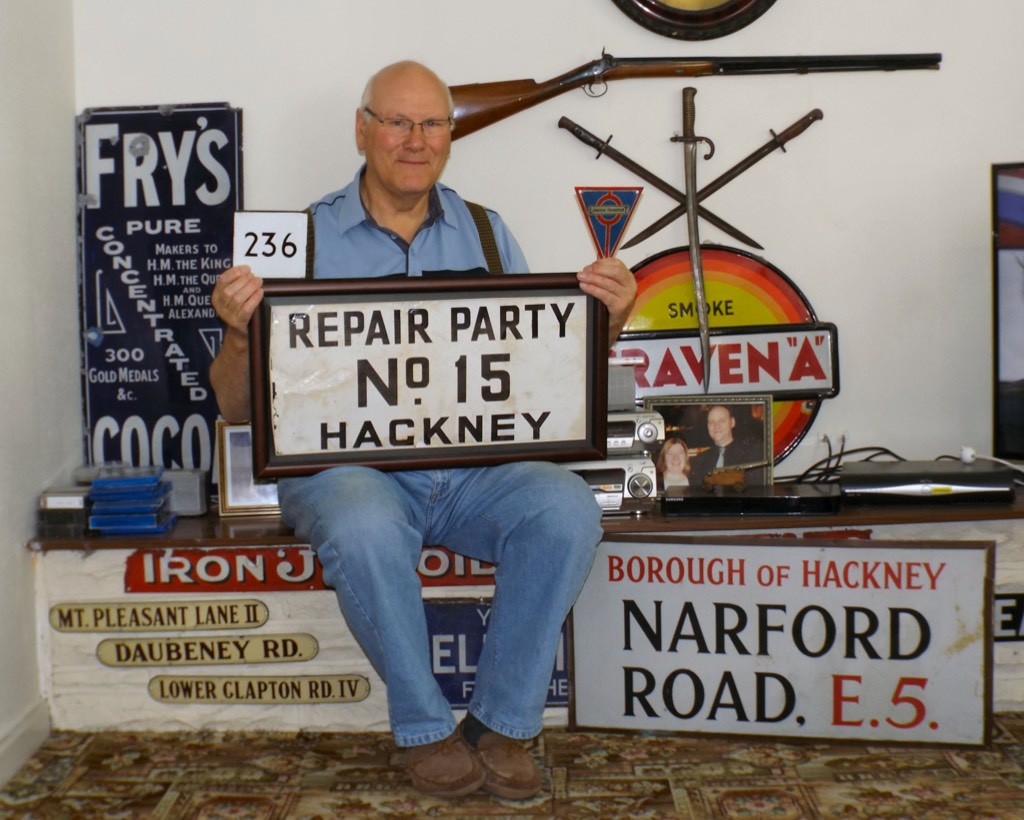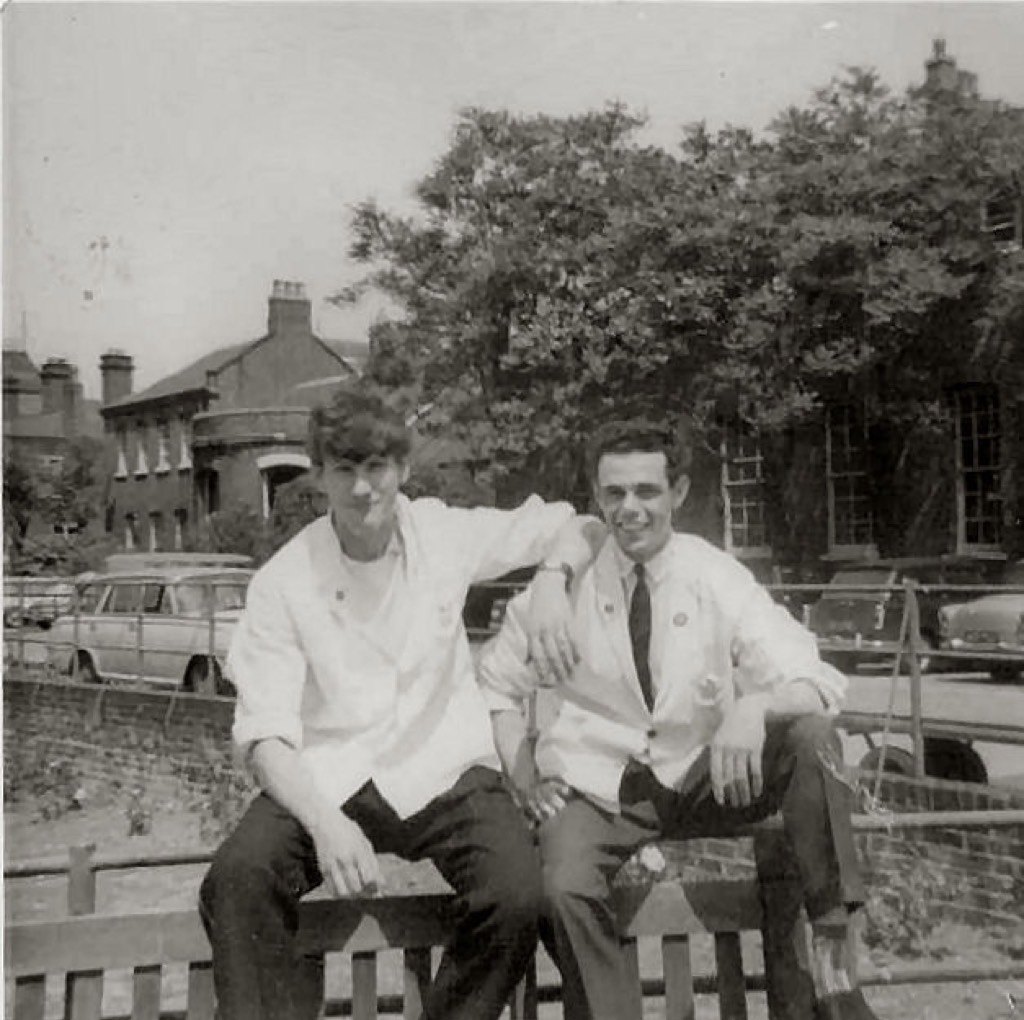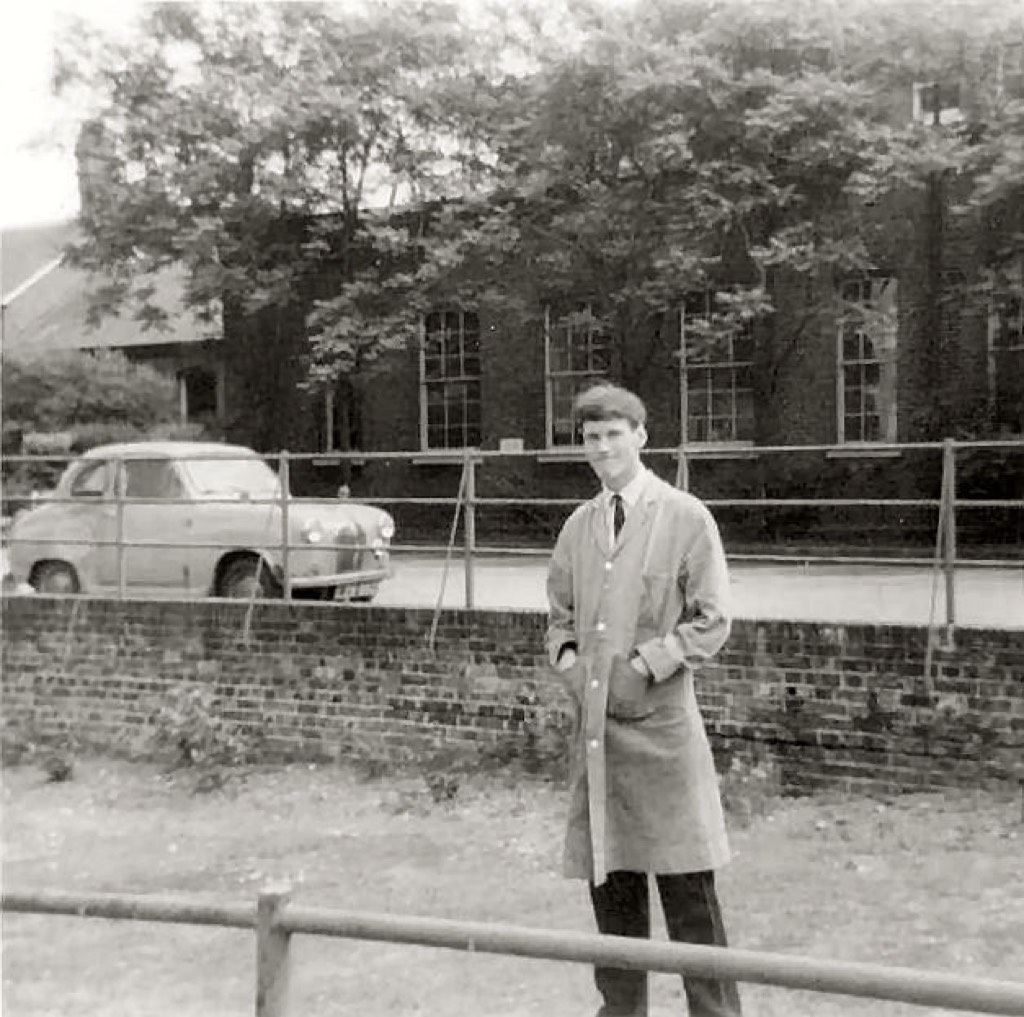Ken Jacobs
As a child in Hackney, the places that were there then that were completely scrubbed off the face of the Earth, like Brooke House for instance, I used to play in Brooke House when I was a kid, used to love it in there, and even as a six-, seven-, eight-year-old, before they demolished it all, I appreciated the beauty, the, the Tudor buildings, the Tudor courtyards. It was a fantastic place. There was that. We used to play, and we used to go up on the roof there after Saturday morning pictures at the Ritz, used to go there and play on the roof. Can you imagine that now, six-, seven-year-olds doing that sort of thing? They’d have the Fire Brigade and everyone there.
Richard: Health and safety.
Oh. Yeah, so, there was all, there was that, that’s one of the biggest things that sticks in my mind. But there’s so much that’s been lost of Hackney’s past by the present.Present governments I suppose, but, I suppose again it’s progress in some people’s minds; in my eyes it’s not, it’s just destruction of our past, our history.
Richard: Mm. So that was what really drove you, that was what took you to Centerprise?
It’s, I think it was probably one of the things, yeah, to help recreate that history, you know, from people’s minds, before it’s too late.
Ken Jacobs was born in Hackney and was working as a postman when he joined the oral history group ‘A People’s Autobiography of Hackney’ in 1973, after spotting Ken Worpole, on a horse-drawn cart, dressed as Dr Jelley, the locally famous ‘threepenny doctor’. By collecting local people’s memories and photographs the group recorded the Hackney of his childhood, which Ken saw as disappearing, both physically and culturally. Ken wanted to ‘to help recreate that history, from people’s minds, before it’s too late.’ Here, to former group convener, Richard Gray, he tells of his love for places like the mews home of Albert Mosley, the rag-and-bone man whom he interviewed for the group’s two-volume oral history, ‘Working Lives’. Next, together with fellow group member Roger Mills, Ken came up with the idea of recording the history of the strangely isolated part of Hackney Downs known as ‘The Island’. From the Lincolnshire bungalow where he now lives, surrounded by Hackney memorabilia, he expresses sorrow at the passing not only of the old buildings, but their inhabitants’ way of life.
Interviewed by Richard and Julia Gray.






